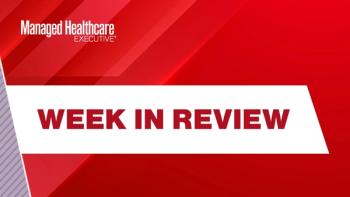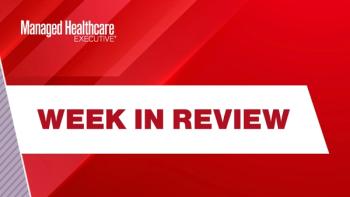
Shawn Kwatra addresses the complexities of atopic dermatitis and prurigo nodularis at the Fall Clinical Dermatology Conference, emphasizing tailored treatment strategies.

Shawn Kwatra addresses the complexities of atopic dermatitis and prurigo nodularis at the Fall Clinical Dermatology Conference, emphasizing tailored treatment strategies.

Employer health premiums rose significantly this year, impacting healthcare costs and insurance access. A KFF survey reveals trends in coverage and employee contributions.

Study participants who used the mPATH-Lung program were 60% more likely to undergo lung cancer screening, than particpants who did not use the program.

A greater understanding of the association between multiple sclerosis (MS) and the oral microbiome may lead to less invasive dialogistic markers and novel treatment options for patients, according to this recent study by researchers at the University of Iowa Health Care.

Rebyota improves quality of life for patients with recurrent C. difficile (C. diff) infections, according to two analyses of real-world data presented at IDWeek 2025.

New findings reveal aflibercept 8 mg enhances vision and extends injection intervals for nAMD and DME patients, reducing treatment burden significantly.

Experts reveal strategies to improve breast cancer screening and outcomes for underserved communities, addressing disparities during Breast Cancer Awareness Month.



Socioeconomic factors are a key risk factor for Type 2 diabetes, but a new analysis says the same is not true when it comes to Type 1 diabetes.

New research reveals AREDS vitamins do not slow geographic atrophy progression in AMD, urging patients to explore FDA-approved treatments instead.

Gazyva is the first and only anti-CD20 monoclonal antibody approved to treat kidney inflammation associated with lupus.

Here’s what you missed this week on Managed Healthcare Executive.

At the American Academy of Ophthalmology meeting, Andrew G. Lee, M.D., explained that El Nino and La Nina weather patterns — worsened by climate change — can worsen eye conditions such as dry eye, cataracts, infections and UV-related damage while also influencing disease outbreaks and access to care.

A study using AAO's IRIS Registry demonstrates Eylea HD 8 mg improves vision in treatment-naive patients with wet age-related macular degeneration or diabetic macular edema with previously treated patients extending dosing intervals two weeks.

A phase 3 trial of Hernexeos (zongertinib) as a first-line treatment for patients with lung cancer tumors with HER2 mutations is underway.

Biosimilars enhance arthritis treatment access, with rising adoption among women and long-term patients, revealing key prescribing patterns in Turkey.

Retina specialists pushed for health awareness, professional independence and industry diversity at this morning’s American Academy of Ophthalmology session.

Daniel Henick, M.D., an ophthalmology resident at Yale New Haven Medical Center, is raising awareness for pickleball injuries by encouraging players to wear protective eye gear during games.

New findings reveal significant geographic disparities in Medicare access, costs and quality, impacting millions of beneficiaries across the U.S.


The world’s first fixed triple therapy formula is already approved in more than 50 countries outside the United States.

Research reveals that even with over 25 million losing Medicaid during unwinding in 2023, the uninsured rate remains stable as many quickly re-enroll or switch coverage.

In this interview, Steven Buslovich, M.D., CMD, MS, chief medical officer of senior care at PointClickCare, explains the growing role of AI in healthcare, particularly in managing patient transitions between care settings.

In this video interview, Francesca Bridge, MBBS, neurologist at Alfred Health in Melbourne, Australia, and Ph.D. candidate at Monash University, shares why the results of her latest research were reassuring, but surprising.

Some menopause symptoms may be mistaken for multiple sclerosis symptoms in older women, new research finds.

In a historical public health move, the Maldives has eliminated mother-to-child HIV, syphilis and hepatitis B, which are collectively responsible for millions of deaths annually across the globe.

Here’s what you missed this week on Managed Healthcare Executive.

More than 60 abstracts will be presented from the ViiV portfolio, including updates from the phase 1 crossover study, the first comparing the acceptability and tolerability of long acting cabotegravir and lenacapavir injections after a single dose.

Experts discuss the implications of Most Favored Nation pricing on U.S. drug costs, innovation and patient access in the latest MJH Life Sciences webinar.